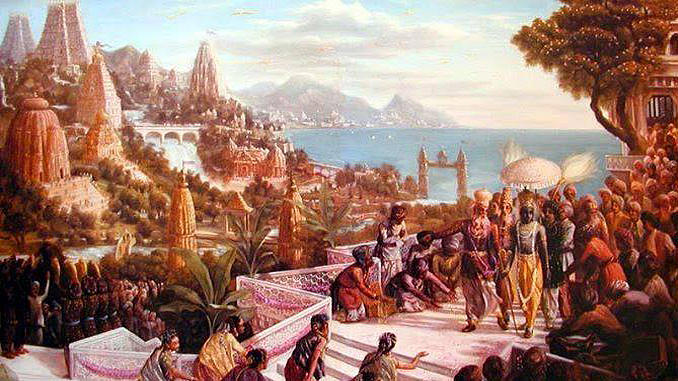
In the great Srimad Bhagavatam composed over 5000 years ago we find the story of the great Asura “Jarasandha”. Jarasandha took birth in two halves which were subsequently dumped in a forest. An old witch named “Jara” found the two pieces, out of curiosity she put them together and the baby miraculously came to life. From then onwards the child was known as “Jarasandha” due to his being put together “sandha“ by an old witch “Jara”
In Sanskrit “Jara” means “to age” “to become old” “to become decrepit”. From “Jara” we get the Sanskrit “Jarita” meaning “old” “decayed” we get “Jaranda” meaning the same and we get “Jaratha” meaning “old age” “drooping” “bent” “yellowish”.
In Europe we see this Sanskrit “Jara” meaning “old” reflected in the Greek “Geros” meaning “old” and “old man” and also the Greek “Gerikos” meaning “old”. Another word which reflects this “Jara” is the Greek “Geron” which also means “old” and from which we get the words “Gerontology” meaning “the science of ageing” and “Geriatrics” a branch of science which deals with the aged. In Latin we have “Gerusia” which means “a council of elders”.
All these words have their roots buried deeply in the Sanskrit language reflecting this Sanskrit “Jara” meaning “old” and when the discussion of “Indo/european” languages arise we should always keep in mind these Sanskrit words go beyond 5000 years, to a language which is always complete, a language which is the fabric of the ancient Vedic scriptures and a language which has not come from something which is now extinct, its “Deva Bhasa” the “language of the Gods”.
” Ages must have passed before the grammatical texture of the Vedic Sanskrit could have assumed the consistency and regularity which it shows throughout. Every tense, every mood, every number and person of the verb is fixed, and all the terminations of the cases are firmly established. . . . The Veda presents the most ancient chapter in the history of the human intellect. We find no traces in the Veda, or in any Aryan work, of a growing language. . . . The whole grammatical mechanism is finished,” and the only changes admitted of are those of “gradual decay and recomposition” (Max Muiller, Hist, of Anc. Sanak. Lit., 526, 528).
